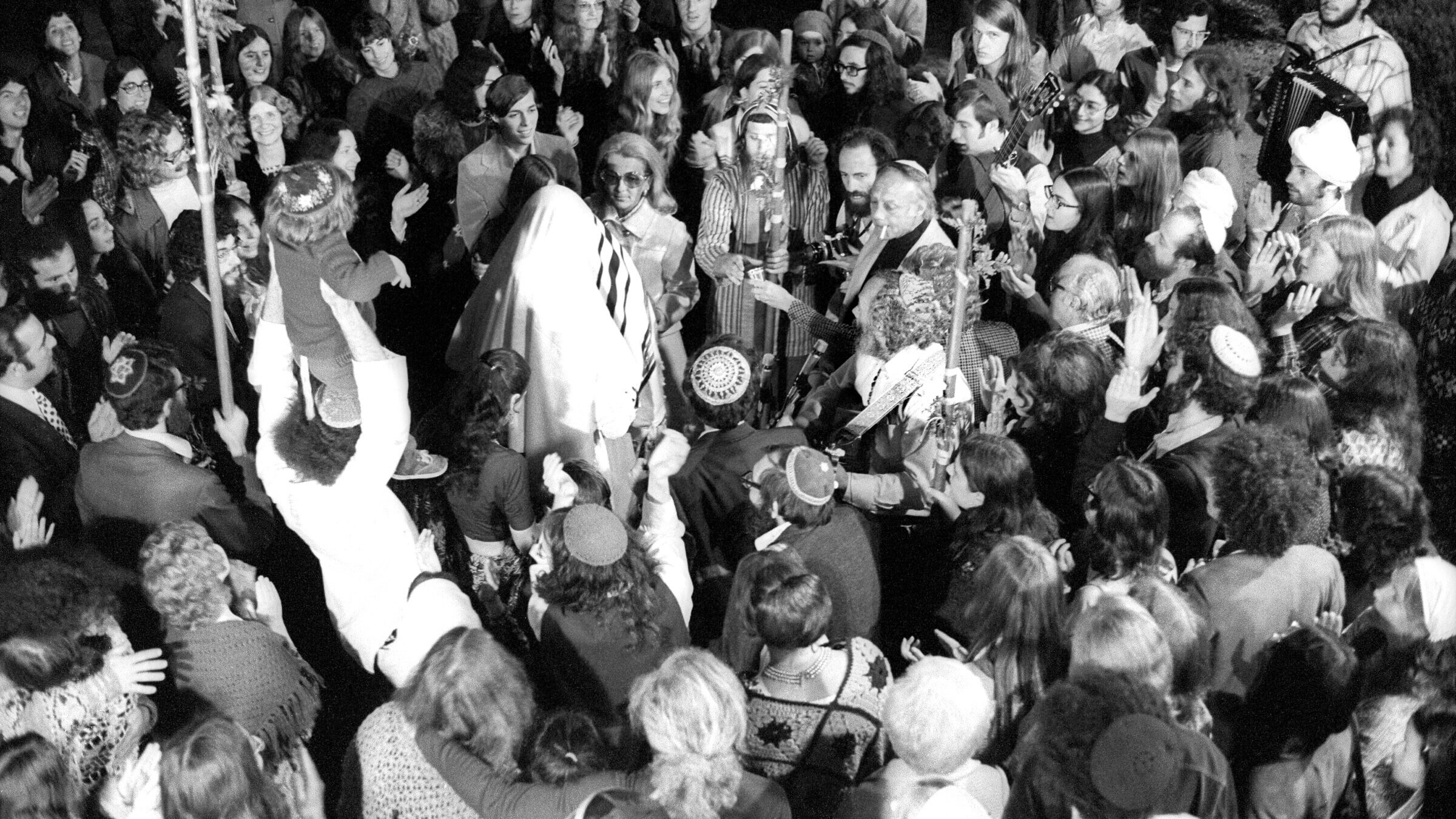‘Am Yisrael Chai’ has become an anthem for the Jewish people — but where did it come from?
Contrary to popular belief, the stirring song does not date back centuries

The anthem was composed by Shlomo Carlebach, the so-called ‘singing rabbi,’ seen here at a wedding in 1973. Photo by Getty Images
Like many of you, I’ve been hearing the stirring song, “Am Yisrael Chai” (The People of Israel Live”), sung with great passion — around the country, in Israel and in communities around the world — since the outbreak of the Israel-Hamas war. It has become second only to “Hatikvah” as an anthem of the Jewish people.
Some believe that “Am Yisrael Chai” dates back centuries, but in fact it was written and first performed in the mid-1960s. It was composed by Shlomo Carlebach (1925-1994), a popular Hasidic “singing rabbi,” at the request of Jacob Birnbaum, the founder of the grassroots Student Struggle for Soviet Jewry (SSSJ), who was seeking an anthem for the fledgling Soviet Jewry movement in the spring of 1965.
Birnbaum and Carlebach knew each other, as did their grandfathers. According to Birnbaum, his grandfather, Nathan Birnbaum, and Carlebach’s grandfather, Rabbi Arthur Cohn, met in 1897 at the first Zionist Congress, held in Basel, Switzerland. (Birnbaum’s grandfather was elected to be the first Zionist Secretary-General.)
Describing the song’s origin story in a 2003 letter found in the files of the Yeshiva University Library, Birnbaum (1926-2014) wrote that he wanted to “generate movement songs” that could inspire young people and other activists at rallies for the cause. Noting Carlebach’s popularity at the time for his soulful melodies put to Hebrew prayers — still favored today in many synagogues around the world — Birnbaum sought to reach out to the Hasidic troubadour, hoping for a catchy composition in time for a planned major rally.
It was set for Sunday, April 4, 1965, and was to be held in front of the Soviet U.N. Mission on East 67th Street in New York. In dramatic fashion, seven people would blow seven shofars, “Jericho style,” and the crowd would march to U.N. headquarters.
“But Shlomo was constantly on the move and hard to pin down,” Birnbaum wrote, so he asked Carlebach’s mother, Rebbetzin Paula Carlebach, to forward his request to her son for a song that would include the words “Am Yisrael Chai.”
“The request began to resonate with him (Carlebach) when he flew to Soviet-dominated Czechoslovakia,” Birnbaum recalled. “Later he told me that he had washed my letter, typed on ‘Student Struggle’ stationery, down the airplane toilet in some trepidation,” fearful of being arrested.
It was during that trip that Carlebach wrote and first performed “Am Yisrael Chai” before a group of youngsters in Prague, Birnbaum later learned. At the time, though, he was still pressing Carlebach’s mother to make sure her son had a composition in time for the April 4 rally in New York. Late on Friday afternoon, April 2, Birnbaum recalled: “My phone rang and Shlomo’s exhausted voice said, ‘Yankele, I’ve got it for you!”
The impact of the song on the crowd was immediate. “Shlomo was inspired,” Birnbaum wrote, noting that “even the usually kvetchy New York Times correspondent basked in the pervasive joyful spirit of the moment.”
Besides the three words, “Am Yisrael Chai,” Carlebach had added three more words to the song, based on the biblical story (Genesis, 45: 3) of Joseph revealing his identity to his brothers. He immediately asks about the welfare of their father, Jacob, whom Joseph has not seen in many years: “ha-od avi chai?” (“Is my father alive?”)
Carlebach transformed the question into an exclamatory statement of affirmation: “od aveenu chai” (“our father is alive!”).
Birnbaum interpreted the phrasing to signify that a rebirth of Jewish life, including music, was beginning to take place post-Holocaust.
Glenn Richter, who served as the tireless national coordinator of SSSJ for 27 years, recalled Carlebach teaching the leadership “Am Yisrael Chai” before the rally “and then belting it out.”
He said the song “swiftly made its way around the Jewish world — including into the USSR.” At this point, he added, the song “has become the second Jewish national anthem.”
Another veteran leader of the Soviet Jewry movement, Zeesy Schnur, who spent 22 years working for the cause, 12 of those years as executive director of the Greater New York Conference on Soviet Jewry, noted that “Am Yisrael Chai” became “the centerpiece” of the annual Solidarity Rally in New York from 1972 to 1991.
It has continued over the decades to excite and inspire audiences gathered for Jewish causes — sad or celebratory — reminding us of what unites us as a living Jewish people. In recent days, “Am Yisrael Chai” is sung in defiance of those who would defeat us.
May it remain a rallying cry of Jewish unity for evermore.
A message from our Publisher & CEO Rachel Fishman Feddersen

I hope you appreciated this article. Before you go, I’d like to ask you to please support the Forward’s award-winning, nonprofit journalism so that we can be prepared for whatever news 2025 brings.
At a time when other newsrooms are closing or cutting back, the Forward has removed its paywall and invested additional resources to report on the ground from Israel and around the U.S. on the impact of the war, rising antisemitism and polarized discourse.
Readers like you make it all possible. Support our work by becoming a Forward Member and connect with our journalism and your community.
— Rachel Fishman Feddersen, Publisher and CEO





























